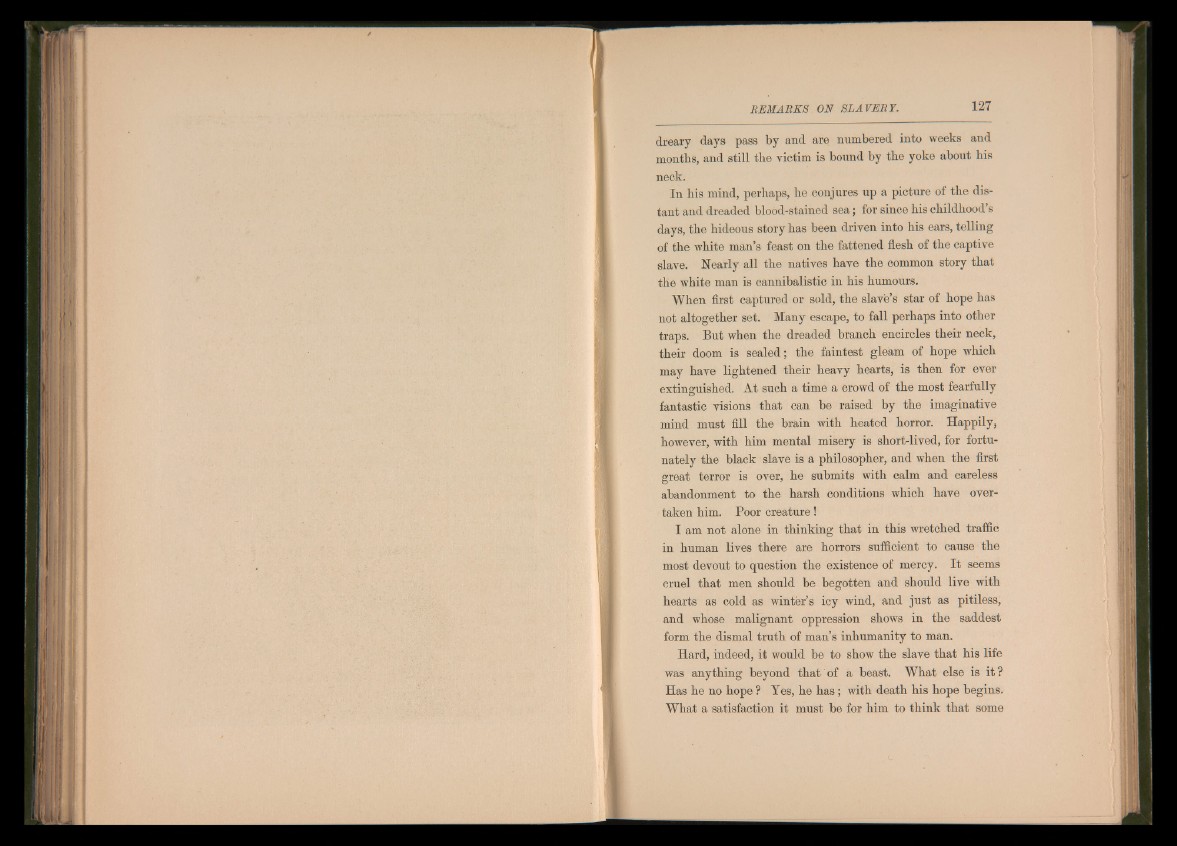
dreary days pass by and are numbered into weeks and
months, and still the victim is bound by the yoke about bis
neck.
In his mind, perhaps, he conjures up a picture of the distant
and dreaded blood-stained sea; for since his childhood’s
days, the hideous story has been driven into his ears, telling
of the white man’s feast on the fattened flesh of the captive
slave. Nearly all the natives have the common story that
the white man is cannibalistic in his humours.
When first captured or sold, the slave’s star of hope has
not altogether set. Many escape, to fall perhaps into other
traps. But when the dreaded branch encircles their neck,
their doom is sealed; the faintest gleam of hope which
may have lightened their heavy hearts, is then for ever
extinguished. At such a time a crowd of the most fearfully
fantastic visions that can be raised by the imaginative
mind must fill the brain with heated horror. Happily,
however, with him mental misery is short-lived, for fortunately
the black slave is a philosopher, and when the first
great terror is over, he submits with calm and careless
abandonment to the harsh conditions which have overtaken
him. Poor creature!
I am not alone in thinking that in this wretched traffic
in human lives there are horrors sufficient to cause the
most devout to question the existence of mercy. I t seems
cruel that men should be begotten and should live with
hearts as cold as winter’s icy wind, and just as pitiless,
and whose malignant oppression shows in the saddest
form the dismal truth of man’s inhumanity to man.
Hard, indeed, it would be to show the slave that his life
was anything beyond that of a beast. What else is it ?
Has he no hope ? Yes, he has; with death his hope begins.
What a satisfaction it must be for him to think that some